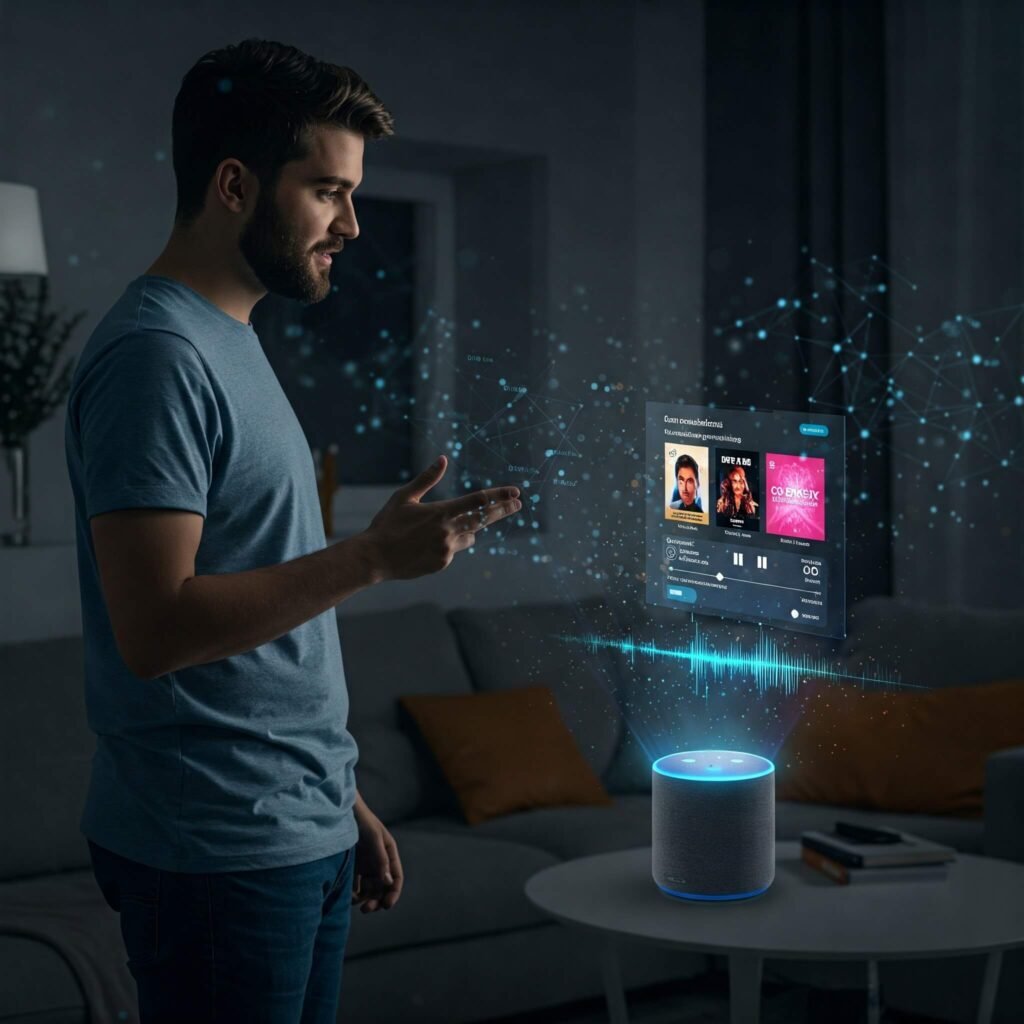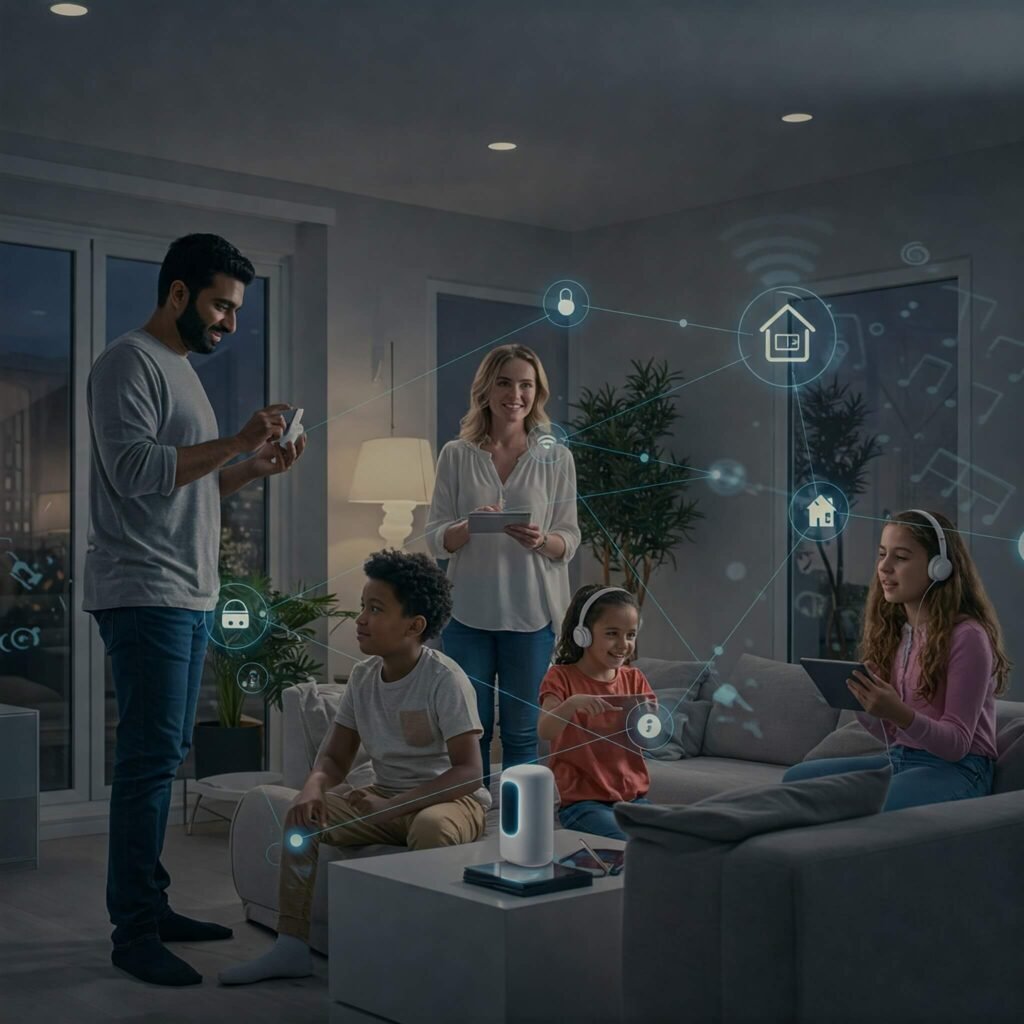Introduction: The Future of Voice Assistants Is Here
The future of voice assistants is transforming how we interact with technology, thanks to AI-driven personalization. In 2025, voice assistants like Alexa, Siri, and Google Assistant are becoming more intuitive, understanding our habits and preferences like never before. According to Statista, over 60% of households globally will use voice assistants by the end of 2025, up from 45% in 2023. This blog explores the future of voice assistant, how AI is personalizing our lives, and what exciting advancements are on the horizon.

How the Future of Voice Assistants Is Shaping Up
The future of voice assistant is being driven by rapid advancements in AI, making them smarter and more personalized. Companies are investing heavily in voice technology, with Forbes reporting that the voice assistant market could reach $50 billion by 2026. Here’s what’s fueling this evolution:
- Improved Natural Language Processing (NLP): Voice assistants now understand complex commands and context better.
- AI Personalization: They learn your routines—like suggesting a morning playlist based on your habits.
- Cross-Device Integration: Voice assistants sync seamlessly with smart home devices, phones, and cars.
- Multilingual Support: Assistants can now switch languages mid-conversation, catering to diverse users.
Takeaway: The future of voice assistant is all about smarter, more tailored interactions.

Key Trends in the Future of Voice Assistants for 2025
The future of voice assistant in 2025 is packed with exciting trends that make our lives easier and more connected. Here are the top developments to watch:
1. Hyper-Personalization in the Future of Voice Assistants
- What It Means: Assistants use AI to analyze your behavior—like reminding you to order groceries based on past purchases.
- Example: Google Assistant might suggest a recipe based on your recent searches and pantry inventory.
- Impact: Saves time and makes daily tasks more efficient.
2. Emotional Intelligence in the Future of Voice Assistants
- What It Means: Assistants detect your tone and mood to respond empathetically.
- Example: If you sound stressed, Alexa might suggest a calming playlist or meditation session.
- Impact: Creates a more human-like interaction, as noted by MIT Technology Review.
3. Privacy Enhancements in the Future of Voice Assistants
- What It Means: New features like on-device processing reduce data sent to the cloud.
- Example: Apple’s Siri now processes many commands locally to protect user privacy.
- Impact: Builds trust among users concerned about data security.
Takeaway: The future of voice assistant in 2025 will prioritize personalization, empathy, and privacy.
How the Future of Voice Assistants Personalizes Daily Life
The future of voice assistant is already making a tangible difference in our routines. AI personalization helps them anticipate our needs, creating seamless experiences. Here’s how they’re enhancing daily life:
- Morning Routines: Your assistant can read your schedule, suggest an outfit based on the weather, and start your coffee maker.
- Work Efficiency: Voice assistants can set reminders, join meetings, or transcribe notes hands-free.
- Entertainment: They recommend shows or playlists based on your mood or past preferences.
- Smart Home Control: Control lights, thermostats, and locks with a single voice command.
Example: When Mark upgraded to a 2025 Amazon Echo, it learned his evening routine—dimming lights, playing jazz, and locking the doors—all with a simple “Good night, Alexa.”
Takeaway: The future of voice assistant makes life more convenient by adapting to your unique needs.

Challenges in the Future of Voice Assistants to Watch
While the future of voice assistant is promising, there are challenges to address as AI evolves:
- Accuracy Issues: Misinterpreting accents or background noise can lead to errors.
- Privacy Concerns: Users worry about data collection despite new safeguards.
- Over-Reliance: Depending too much on voice assistants might reduce critical thinking.
- Solution: Stay informed about updates and privacy settings via TechCrunch.
Takeaway: Understanding these challenges helps you make the most of the future of voice assistant.
What’s Next for the Future of Voice Assistants Beyond 2025
Looking beyond 2025, the future of voice assistant will continue to evolve with AI breakthroughs. Experts predict assistants will become fully autonomous, capable of managing entire households or even assisting in healthcare by monitoring vitals. Forbes suggests that by 2030, voice assistants could integrate with augmented reality (AR) for immersive experiences—like projecting recipes while you cook.





































